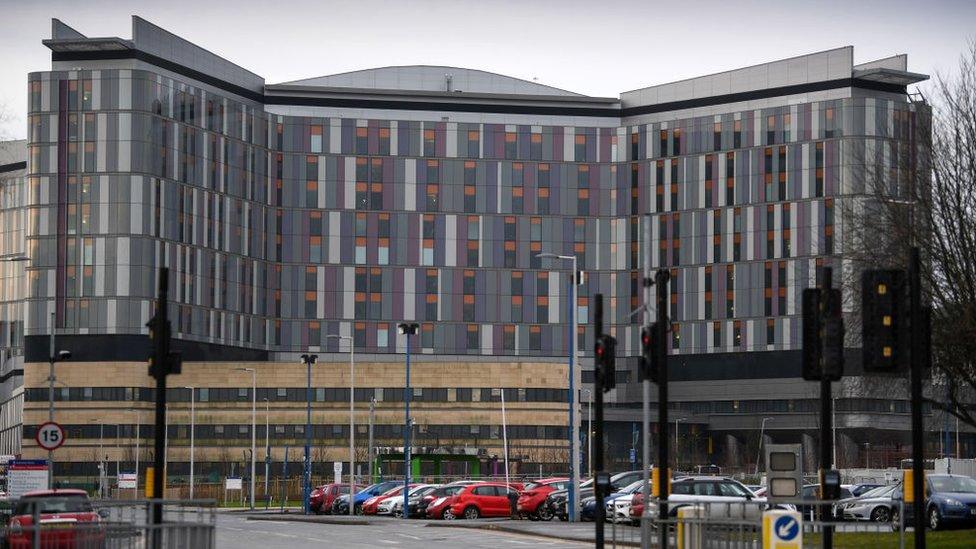NHS board launches legal bid to have new report heard at public inquiry
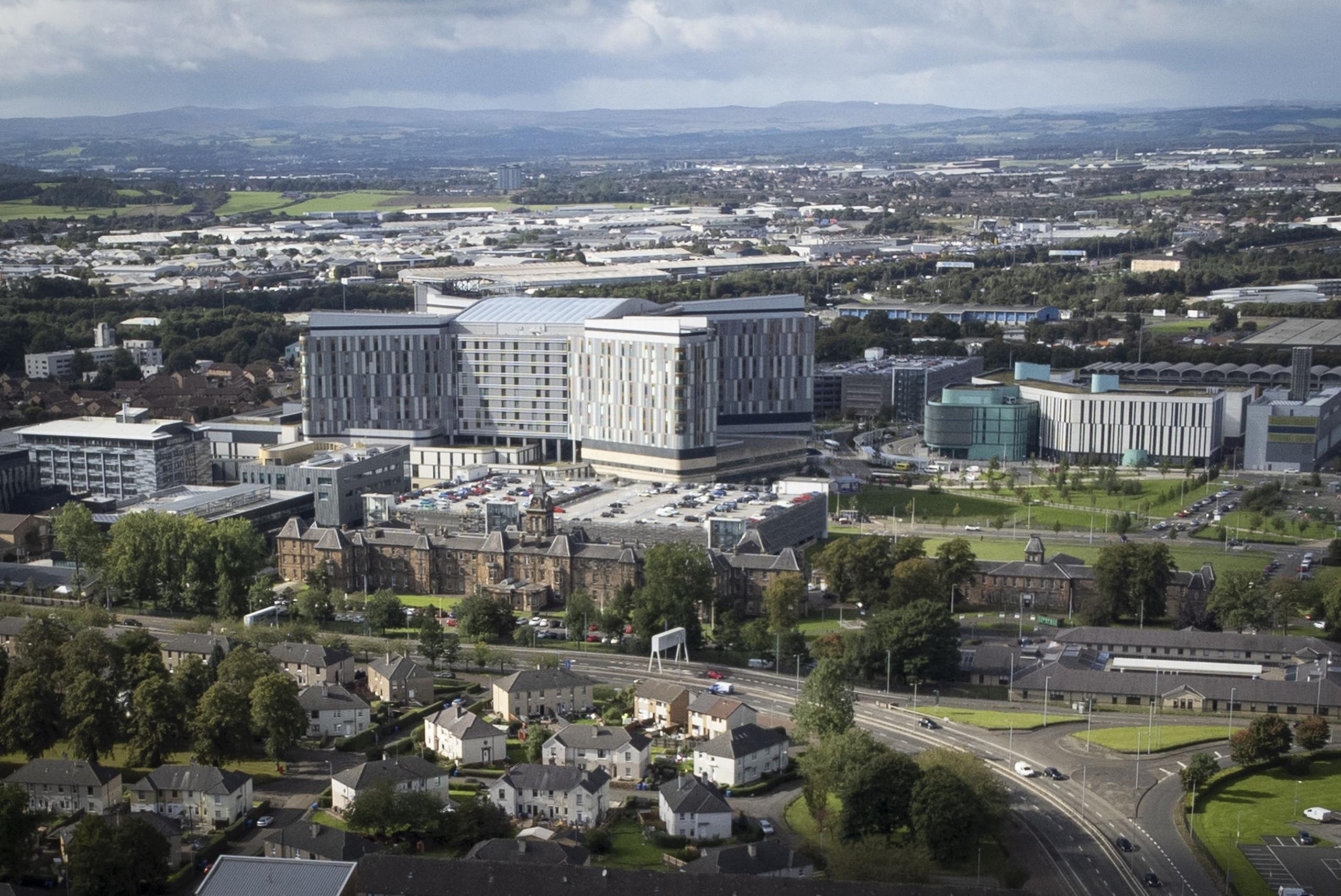
The Queen Elizabeth University Hospital in Glasgow is Scotland's biggest hospital and opened in 2015
- Published
The public inquiry into patient safety at Scotland's biggest hospital is facing a legal challenge over its decision to reject new evidence for its latest hearings.
Earlier this month, NHS Greater Glasgow and Clyde (GGC) submitted a report to the Scottish Hospitals Inquiry claiming the Queen Elizabeth University Hospital campus had no excess infections since 2015.
But the inquiry rejected the submission, saying it would delay the inquiry's progress at this stage.
Now NHS GGC is seeking a judicial review of this decision.
The long-running public inquiry is examining safety and wellbeing issues at hospitals in Glasgow and Edinburgh.
Its hearings over the next 14 weeks will focus on water contamination and ventilation issues at the Queen Elizabeth University Hospital and Royal Hospital for Children in Glasgow.
NHS GGC said its bid for a Court of Session review of the inquiry's decision not to accept the report it commissioned does not include a request to postpone any of these evidence hearings.
A statement from the health board said it was "fully committed to supporting the Scottish Hospitals Inquiry to establish the facts as it examines issues in relation to patient safety within our hospitals".
It added: "This report’s conclusions are highly relevant to the inquiry’s terms of reference.
"It addresses key questions of patient safety, issues which will significantly impact public confidence in our hospitals. These are also issues of significant importance to patients and families and our staff."
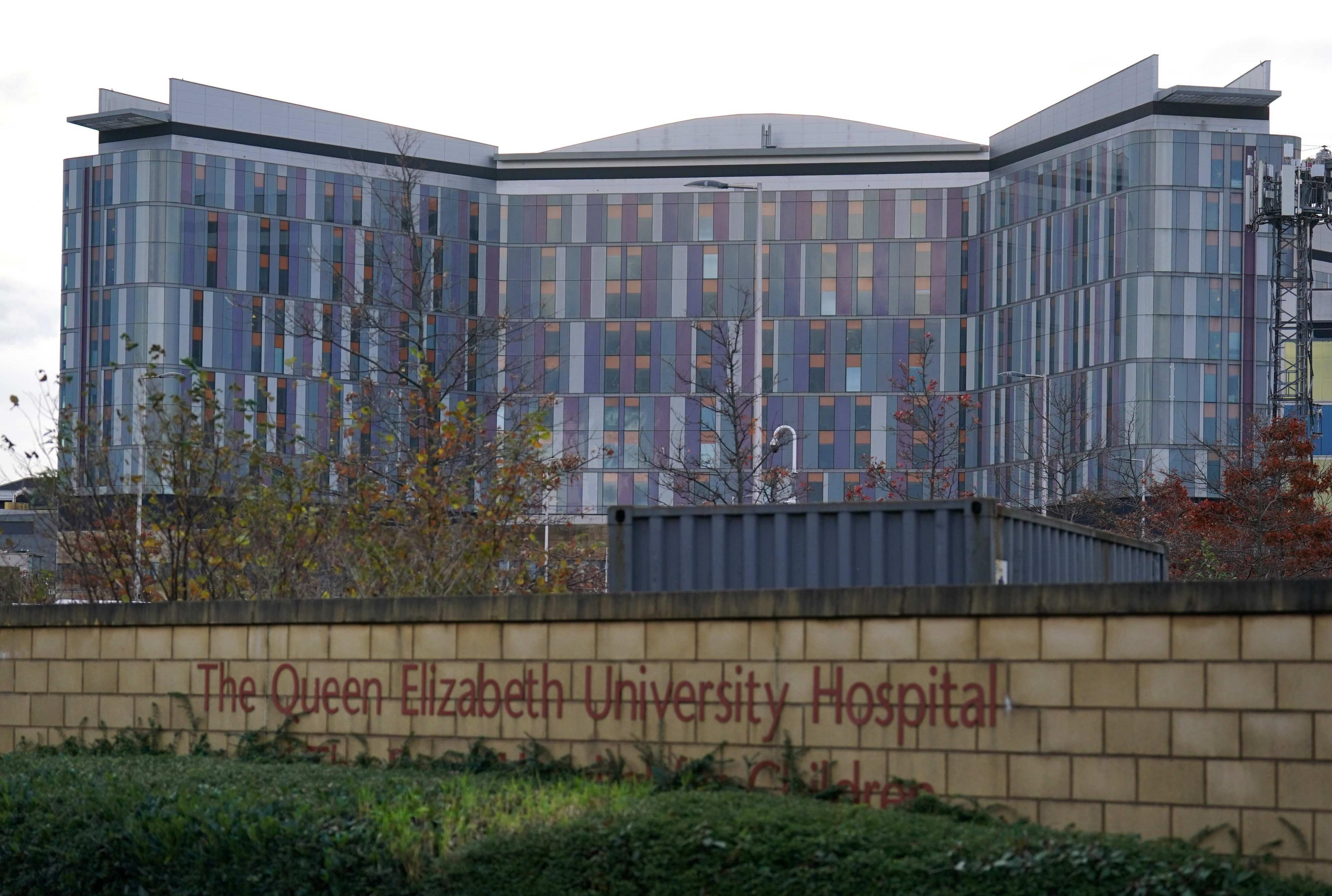
A procedural hearing of the inquiry was held on 1 August to determine if the 218-page report should be submitted.
The new report's findings conflict with an independent review published in 2021, led by Professor Mike Stevens.
It found the deaths of at least two child cancer patients were at least in part down to infection linked to the hospital environment at the campus - which includes the Royal Hospital for Children.
Lawyers for affected families and doctors who became whistle-blowers questioned why the report had been presented to the inquiry just three weeks before hearings were due to start.
They argued it gave their clients very little time to consider it properly.
Peter Gray KC, representing NHS GGC, told the inquiry that it was "unfortunate" the report was only now being made available.
He said it had been produced "as quickly as reasonably practicable", given the volume of data collected and how busy its authors had been.
Practical reasons
Lord Brodie explained in his decision issued following the hearing, “that for reasons of principle and practicality" he would refuse the motion to have the report submitted as evidence.
A spokesman for the Scottish Hospital Inquiry said: “We are aware of NHS Greater Glasgow and Clyde's intention to seek a judicial review.
"It would be inappropriate to comment further at this point.”
- Published1 August 2024
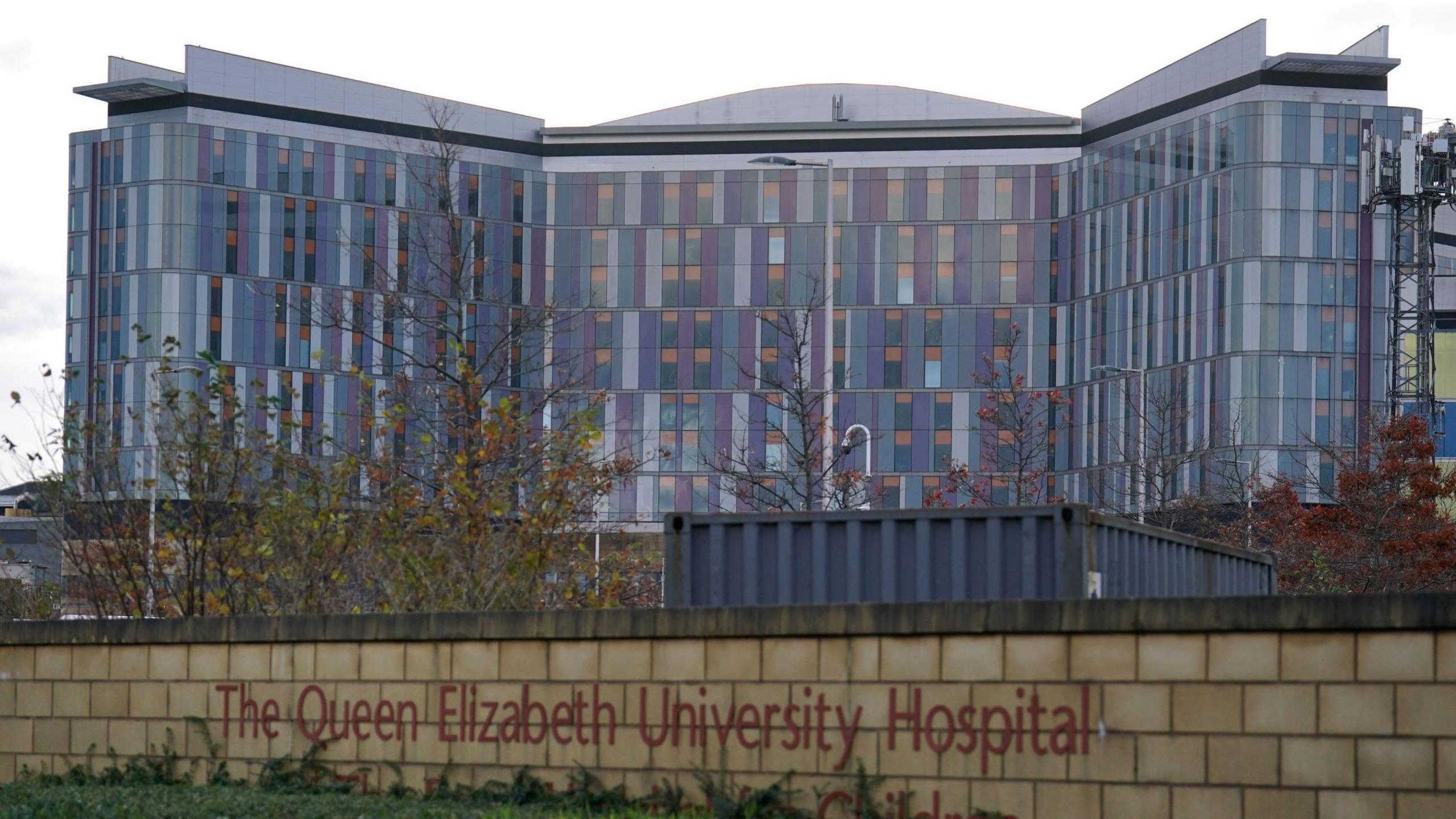
- Published19 August
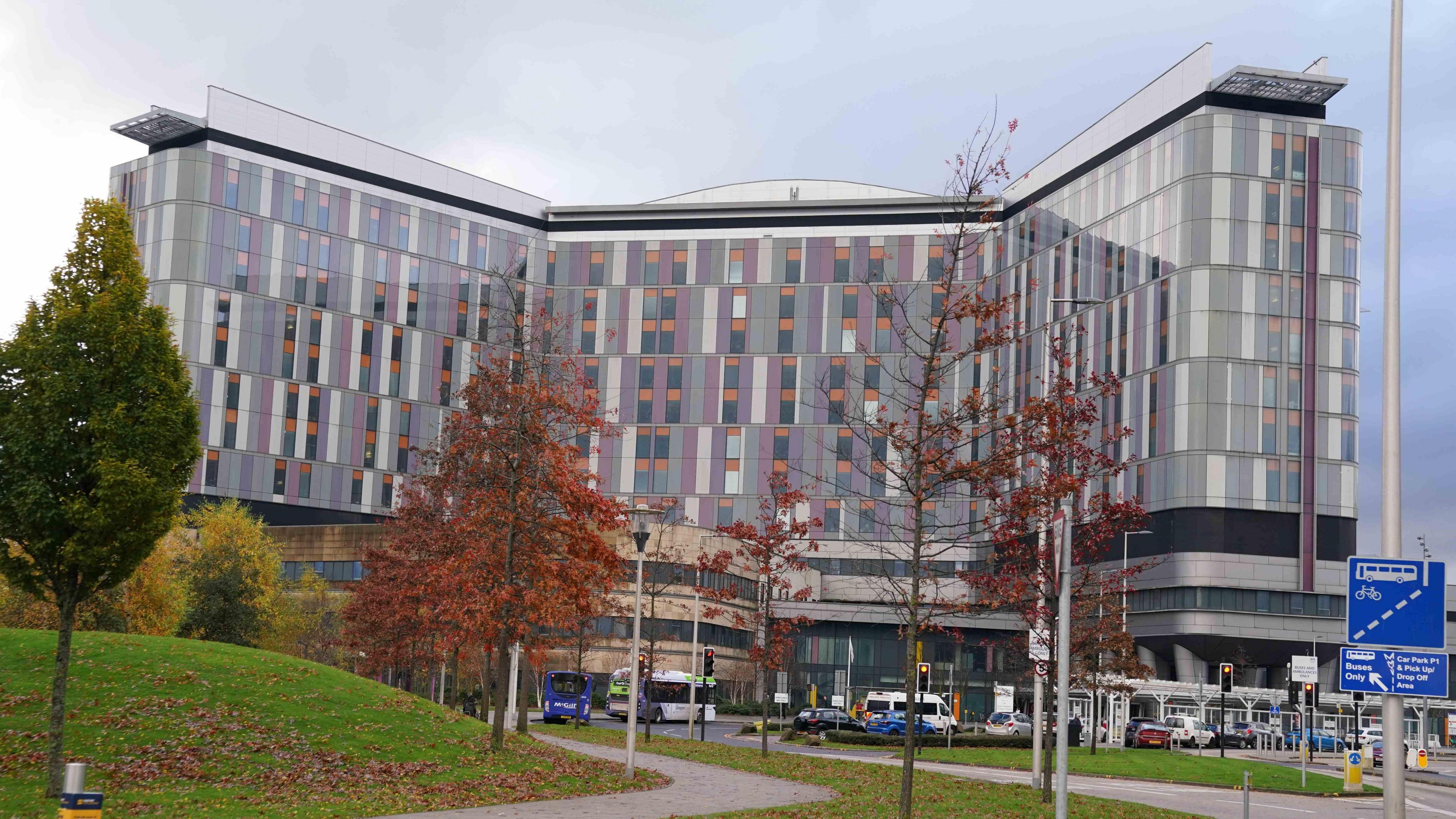
- Published15 June 2023
